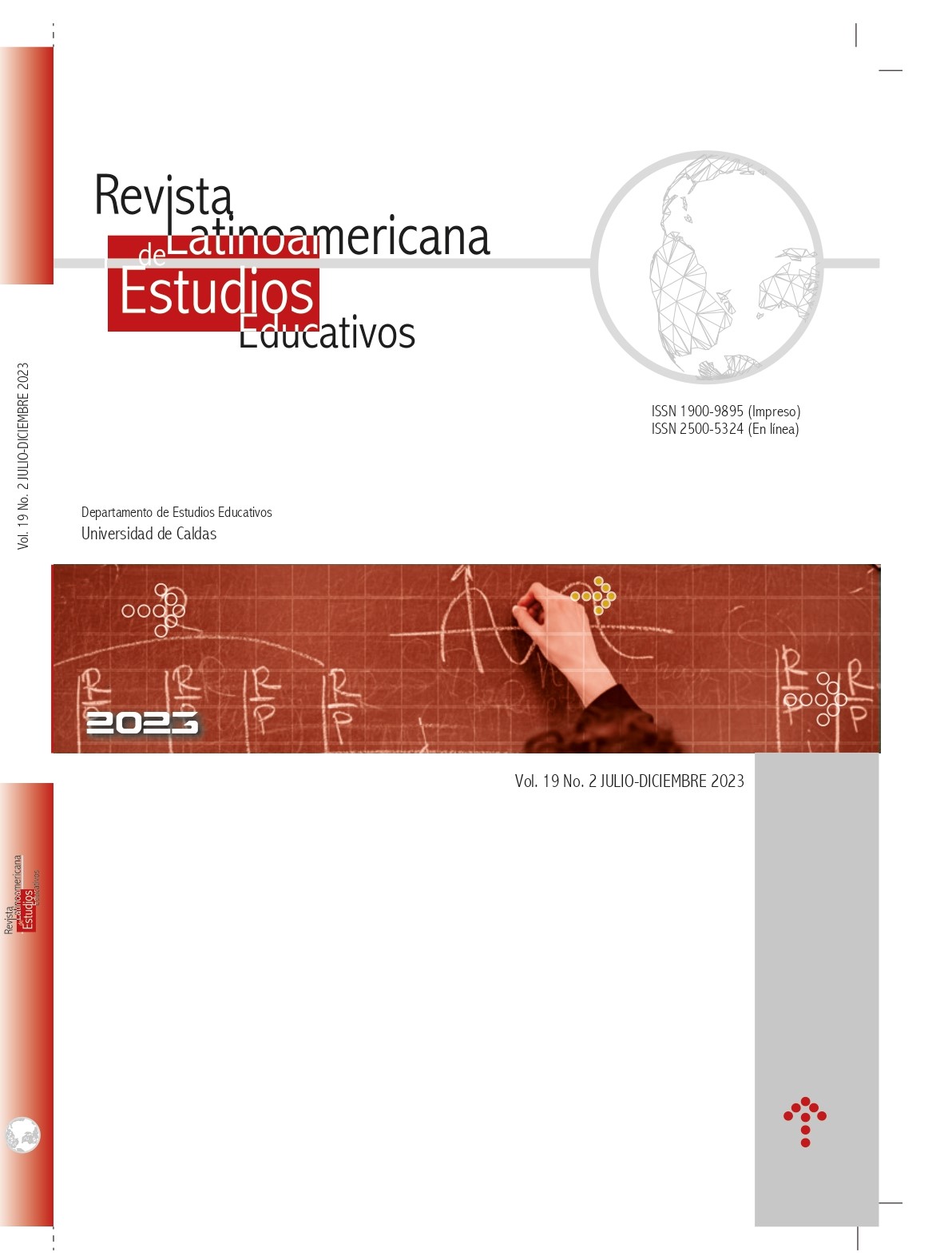Authors
Abstract
Metacognition is approached from the perspective of Schraw & Moshman (1995), who define it as an individual's ability to understand, reflect on and control his or her own learning. This implies having knowledge about how cognition works and how to regulate it. This research was carried out in a philosophy classroom context, in which it is important to take into account that little research has been done in this area from a metacognitive perspective. However, the studies conducted so far, have shown a good performance between philosophy and metacognition, as mentioned by Worley & Worley (2019) who suggest that philosophy can improve metacognition and the existence of a useful connection between both areas. The objective of this study was to determine the effect of a learning strategies program on metacognitive performance and metacomprehension in a sample of middle school students in philosophy class in a private institution in the city of Manizales. These learning strategies are based on the work of Hattie (2009) and were adapted to be used in this intervention. To evaluate the results, the inventory of metacognitive skills MAI Huertas Bustos et al. (2014) and the inventory of metacognitive skills in reading strategies MARSI Mokhtari & Reichard (2002) were applied before and after carrying out the intervention. He results of this research mutually indicate that the MAI and the MARSI showed significant improvements in the posttest, suggesting a positive effect of the learning strategies program used. In addition, greater impact and power was observed in four of the categories evaluated. This demonstrates the importance of implementing metacognitive learning strategies in the philosophy classroom to improve students' understanding and academic performance.
References
Bereiter, C., & Scardamalia, M. (1987). The Psychology of Written Composition.
Bloom, B. S. (1984). The 2 sigma problem: The search for methods of group instruction as effective as one-to-one tutoring. Educational Researcher 13(6), 4-16. https://citeseerx.ist.psu.edu/document?repid=rep1&type=pdf&doi=ce9ccc58eb7db2c1ebc474ecba57
72176afa71d3
Bulut, İ. (2018). The Levels of Classroom and Pre-school Teachers’ Metacognitive Awareness. Universal Journal of Educational Research, 6(12), 2697-2706. https://doi.org/10.13189/ujer.2018.061201
Cárdenas Castro, J. M. (2014). Potencia estadística y cálculo del tamaño del efecto en G*Power: complementos a las pruebas de significación estadística y su aplicación en psicología. Salud & Sociedad, 5(2), 210-244. https://doi.org/10.22199/S07187475.2014.0002.00006
Chatzipanteli, A., Grammatikopoulos, V., & Gregoriadis, A. (2014). Development and evaluation of metacognition in early childhood education. Early Child Development and Care, 184(8), 1223–1232. https://doi.org/10.1080/03004430.2013.861456
Cohen, J. (2013). Statistical Power Analysis for the Behavioral Sciences. Routledge. Flavell, J. H., Green, F. L., & Flavell, E. R. (1995). The development of children’s knowledge about attentional focus. Developmental Psychology, 31(4), 706-712. https://doi.org/10.1037/0012-1649.31.4.706
Hattie, J. (2009). Visible Learning: A Synthesis of Over 800 Meta-Analyses Relating to Achievement. Routledge.
Hattie, J. A. C., & Donoghue, G. M. (2016). Learning strategies: a synthesis and conceptual model. Npj Science of Learning, 1(1). https://doi.org/10.1038/npjscilearn.2016.13
Hernández, R., Fernández, C. y Baptista, L. P. (2016). Metodología de la investigación (Vol. 6). McGraw-Hill.
Huertas Bustos, A. P., Vesga Bravo, G. J. y Galindo León, M. (2014). Validación del instrumento “Inventario de habilidades metacognitivas (MAI)” con estudiantes colombianos. Praxis & Saber, 5, 56-74. http://www.scielo.org.co/scielo.php?pid=S2216-01592014000200004&script=sci_arttext
ICFES. (2020). Informe Nacional de Resultados para Instituto Colombiano para la Evaluación de la Educación-Icfes. http://www.freepik.es
Limueco, J. M., & Prudente, M. S. (2019). Flipped classroom enhances student’s metacognitive awareness. Proceedings of the 10th International Conference on E-Education, E-Business, E-Management and E-Learning, 70-74. https://doi.org/10.1145/3306500.3306507
Mokhtari, K., Dimitrov, D. M., & Reichard, C. A. (2018). Revising the “Metacognitive Awareness of Reading Strategies Inventory” (MARSI) and testing for factorial invariance. Studies in Second Language Learning and Teaching, 8(2), 219–246.https://doi.org/10.14746/ssllt.2018.8.2.3
Mokhtari, K., & Reichard, C. A. (2002). Assessing students’ Metacognitive Awareness of Reading Strategies. Journal of Educational Psychology, 94(2), 249-259. https://doi.org/10.1037/0022-0663.94.2.249
Pineda Rivera, D. A. (1992). Filosofía para niños: un acercamiento. Universitas philosophica, 10(9), 103-121. https://revistas.javeriana.edu.co/index.php/vniphilosophica/article/view/11779
Puente, A., Mendoza-Lira, M., Calderón, J. F. y Zúñiga, C. (2019). Estrategias metacognitivas lectoras para construir el significado y la representación de los textos escritos. Ocnos: Revista de estudios sobre lectura, 18(1), 21-30. https://doi.org/10.18239/ocnos_2019.18.1.1781
Razali, N. M., & Wah Yap, B. (2011). Power comparison of Shapiro-Wilk, Kolmogorov-Smirnov, Lilliefors and Anderson-Darling test. Journal of statical modeling and analytics, 2(1), 21-33. https://www.nbi.dk/~petersen/Teaching/Stat2017/Power_Comparisons_of_Shapiro-Wilk_Kolmogorov-Smirn.pdf
Rebolledo Luna, V., Gutiérrez Gómez, F., Soto Fajardo, C., Rodríguez Poblete, M. F. y Palma Sánchez, D. (2020). Tecnologías para la comprensión lectora: estado actual y nuevos desarrollos. Revista digital universitaria, 21(6). https://doi.org/10.22201/cuaieed.16076079e.2020.21.6.7
Schraw, G., & Dennison, R. S. (1994). Assessing Metacognitive Awareness. Contemporary Educational Psychology, 19(4), 460-475. https://doi.org/10.1006/ceps.1994.1033
Schraw, G., & Gutierrez P, A. (2015). Metacognitive Strategy Instruction that highlights the role of monitoring and control processes. In A. Peña Ayala (Ed.), Metacognition: fundaments, applications and trends (Vol. 76, pp. 22-35). Springer.
Schraw, G., & Moshman, D. (1995). Metacognitive theories. Educational Psychology Review, 7(4), 351–371. https://doi.org/10.1007/BF02212307
Soto, C., Gutierrez de Blume, A. P., Rebolledo, V., Rodríguez, F., Palma, D., & Gutiérrez, F.(2023). Metacognitive monitoring skills of reading comprehension and writing between proficient and poor readers. Metacognition and Learning, 18(1), 113-134. https://doi.org/10.1007/s11409-022-09317-8
Wayne, D. W. (2002). Biostatistics: a foundation for analysis in the health sciences.Editorial Limusa S.A.
Worley, E., & Worley, P. (2019). Teaching critical thinking and metacognitive skills through philosophical enquiry. A practitioner’s report on experiments in the Classroom1. Childhood and Philosophy, 15, 1-34. https://doi.org/10.12957/CHILDPHILO.2019.46229
Wulan Dari, R., & Laily Noviabahari, J. (2018). The Freshmen’s Metacognitive Awareness of Reading Strategies. In 2nd Social Sciences, Humanities and Education Conference: Establishing Identities through Language, Culture, and Education (SOSHEC 2018) (pp. 182-186). Atlantis Press.

 PDF (Español)
PDF (Español)
 FLIP
FLIP
























